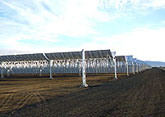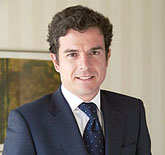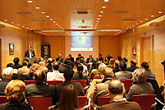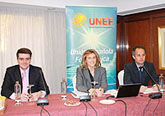The SNE new president since yesterday, José Antonio Gago, proposed a State Pact that recognizes the importance of nuclear power plants in the containment of prices and emissions reduction. Precisely because it contributes to achieving the environmental commitments, he also called for a reduction of the tax regime levied on this type of energy.
Madrid. Elena Alonso Asensio
The up to now vice-president of the Spanish Nuclear Society replaces as of yesterday Jose Ramon Torralbo in the SNE presidency. In a press conference he explained that not only are they optimistic that the life of the Spanish nuclear power fleet will be extended but that it is also an essential tool to contain prices and to meet the environmental commitments acquired at an international level. He also reminds us that it would provide us with energy independence and security of supply.
As for the first point, Gago pointed out that according to data from the Ministry of Energy, in Spain, without nuclear the wholesale price of electricity would be 28% more expensive. He cited the case of Germany that made the decision to close its nuclear plants and «is now the second European country with the most expensive price of electricity and has to produce with coal and pollutant sources,» in addition to seemingly having to compensate the owning companies for undertaking the closure ahead of schedule.
Life of nuclear plants beyond the age of 40
The SNE´s new president was keen to argue also that extending the operation of nuclear power plants beyond 40 years is a trend that is consolidating at the international level and is endorsed by international organizations and new projects being implemented.
Along these lines, he recalled that, at the international level, 85 out of the 99 plants in the United States are licensed to operate up to 60 years. He also reinforced this idea by pointing out that many member states within Europe import nuclear from France or the Czech Republic, for example.
Gago recalled that in the Spanish case, nuclear annually avoids 40 million tons of CO2, equivalent to the emissions produced by half the Spanish car fleet. If their operation life was extended to 60 years 800 million tons would be avoided and 1.200 million kWh would be produced which is the total consumption of four years.
Tax recognition and State Pact
Both José Antonio Gago and José Ramón Torralbo made clear to the media the high taxation being levied on nuclear energy in our country. In this regard, they face the decision that has been made in Sweden or in the State of New York, where they have included in their legislation a tax concession for nuclear, wind and solar generation as non-CO2-emitting energies.
In this sense, the SNE points out that of all the electricity produced in Spain in 2016 60% has been CO2-free and of this percentage 35% is due to the contribution of nuclear energy, which has been again, for the sixth year in a row the country’s main source of electricity production, with a share of 21.4%.
Both have also recalled the important role played by this source of energy as a guarantor for the supply in adverse weather conditions such as those that took place last January and they have highlighted above all the performance of the plant in Cofrentes, which allowed to maintain the hub when the lines fell in Valencia, and Trillo in Castilla La Mancha.
Against this background, Gago called for a State Pact, based on technical arguments and not on ideological convictions that recognizes «the importance of nuclear energy in achieving the objectives of reliability, security of supply, competitiveness and respect for the environment that we all want. «
The press conference took place at the High Technical School of Industrial engineers of Madrid (UPM), where the Spanish Nuclear Society was co-celebrating the «Day of Operational Experiences of Nuclear Power Plants during 2016 and expectations for 2017». During the day, the results of each of these facilities were presented, while after this they held the Annual Assembly where the new Board of Directors of this Association is elected.
Carlos Sánchez Criado
Publicista por la Universidad Complutense. Director comercial de publicaciones técnicas del sector de la energía durante doce años. Director de Energy News Events, S.L. desde 2012 difundiendo información en Energynews.es, movilidadelectrica.com e hidrogeno-verde.es. Y por supuesto, organizando eventos como VEM, la Feria del Vehículo Eléctrico de Madrid.



























